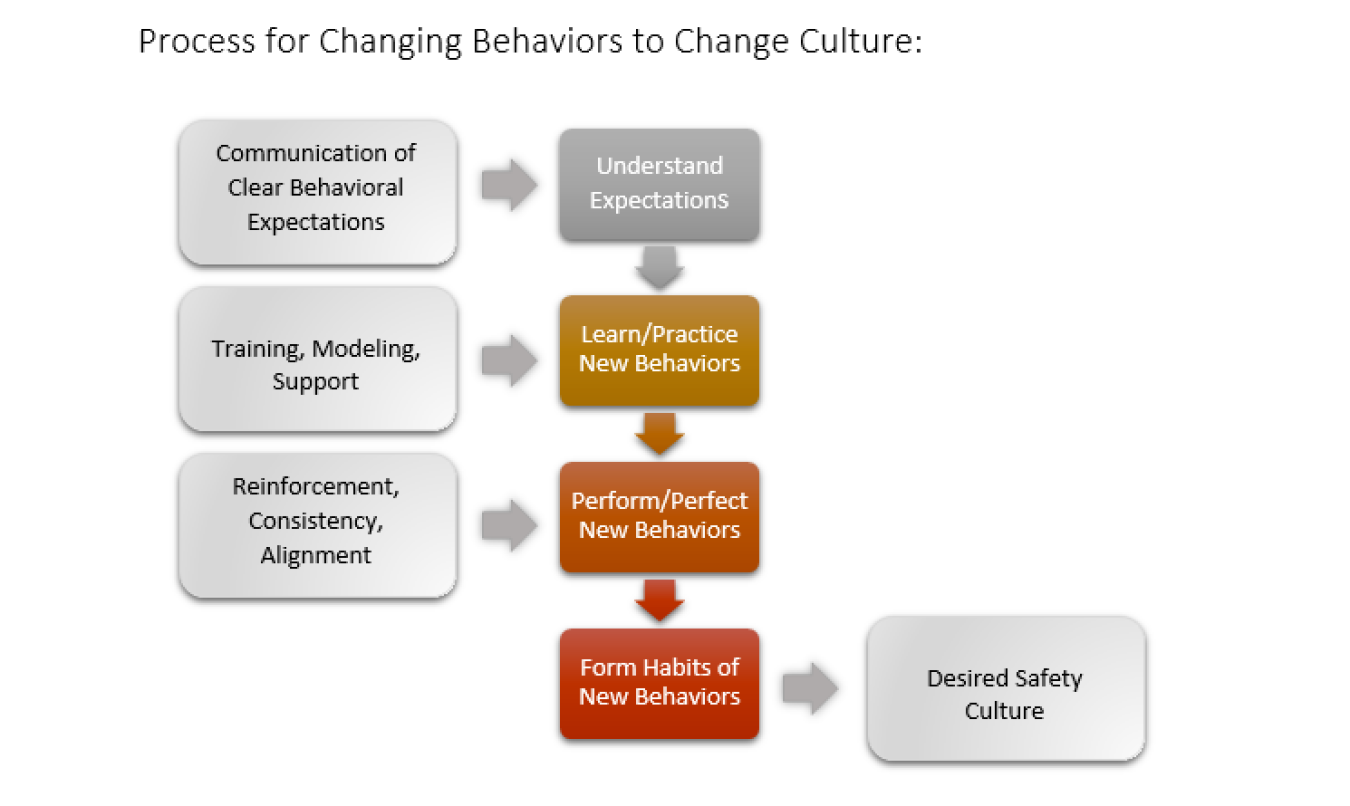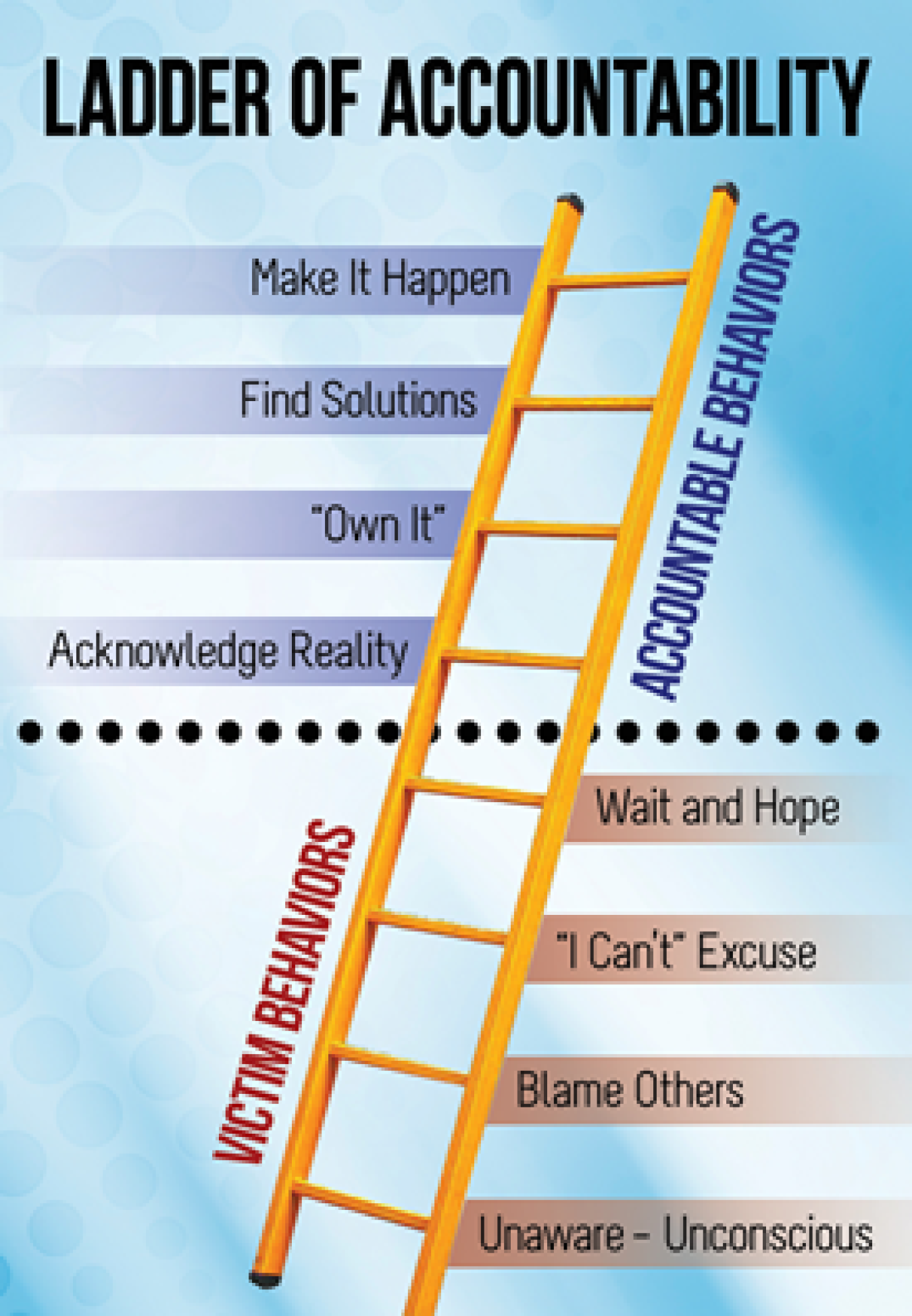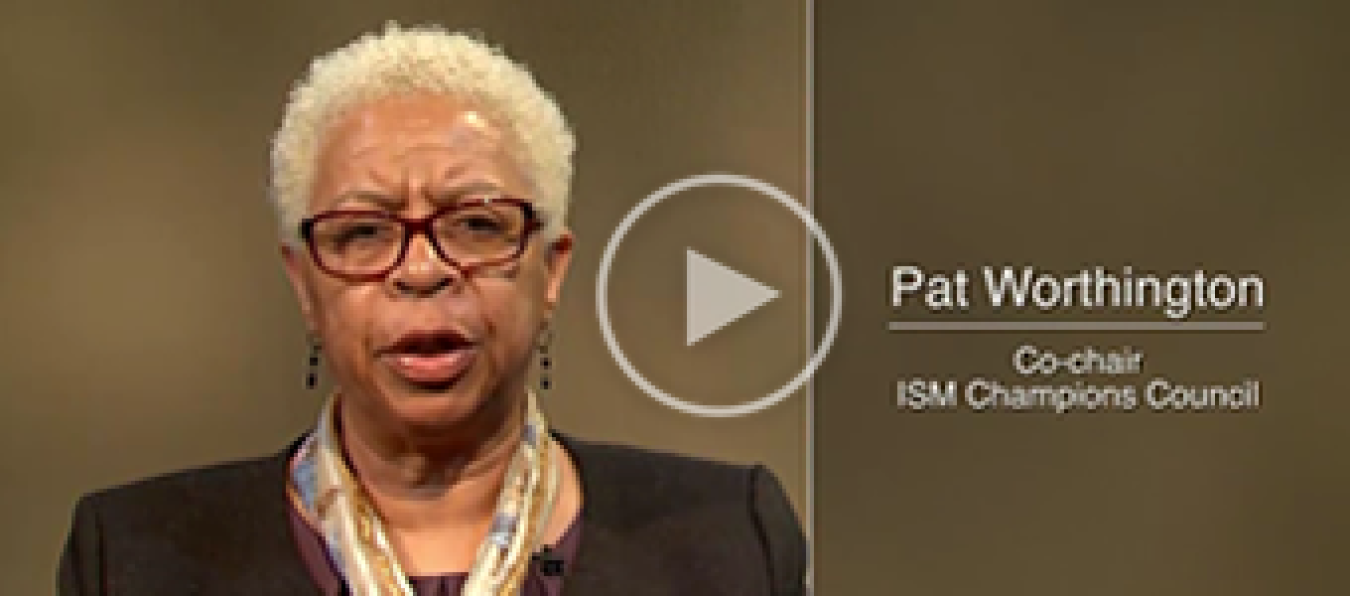

The DOE recognizes training as a key component of culture change. Training may start in the classroom, but that is just the beginning. In a strong safety culture, there is reinforcement, consistency, and alignments that help everyone perform and perfect new behaviors.
“We must continue to further strengthen our safety culture. To sustain long-term improvement in safety culture is hard work, every single day. It is work that will never be done. It takes concerted, deliberate, and continued efforts by each individual within the EM organization. It is up to each one of us to positively influence the culture to support an open and collaborative work environment.” James Hutton, Deputy Assistant Secretary for Safety, Security, and Quality Assurance
The DOE implements an important mechanism by which to convey such expectations and new behaviors through a coordinated effort between the National Training Center (NTC) and the Safety Culture Improvement Panel (SCIP) Training Working Group. Nearly 2,500 senior federal and contractor leaders have taken NTC Course TLP-200, Safety Culture for Senior Leaders, and additional sessions are planned for the upcoming year. In addition, during the upcoming year, through the efforts of the Training Working Group, the NTC, and other training design partners, two additional courses will be rolled out: TLP-150, Safety Culture for Front Line Leaders, and TLP-100, Safety Culture Employee Training.
The Department of Energy (working through the National Institute of Environmental Health Sciences) has a grant with the Center for Construction Research and Training to develop a Safety Culture course for DOE workers this year. A meeting is being held on February 16 and 17 at HAMMER to gather input from labor organizations and create draft material. The TLP-200 and TLP150 course material will be provided to ensure flow down of concepts.
TLP-150, Safety Culture Training for Front Line Leaders
The U.S. Department of Energy (DOE) expects managers and workers to support a strong Safety Culture where “safe performance of work and involvement of workers in all aspects of work performance are core values.” Minor issues may become bigger due to first line/front line supervisor response. The purpose of TLP-150, Safety Culture Training for Front Line Leaders is to train DOE Federal and contractor Front Line Leaders on how to establish and maintain a trusting and collaborative Safety Culture where all employees feel free to raise concerns. DOE Federal management, contractor management and labor will open the sessions. The course will be presented by local instructors and SMEs. Estimated Length: 8 hours
A Train the Trainer workshop at HAMMER in February. Pilot sessions of TLP-150 will be conducted in Oak Ridge, Tennessee in March and in Idaho Falls, Idaho in April.
TLP-100, Safety Culture Training for Workers
This course is an opportunity for attendees to explore and understand safety culture; their role in it; how organizations can pursue improvements; the importance of managers, supervisors, and workers roles; and how attendees can personally benefit from a healthy safety culture. Participants will apply and discuss course concepts in a group environment.
DOE working through NIEHS has a grant with the Center for Construction Research and Training to develop a Safety Culture course for DOE workers this year. A meeting is being held on February 16 and 17 at HAMMER to gather input from labor organizations and create draft material. The TLP-200 and TLP150 course material will be provided to ensure flow down of concepts.
TLP-200/SCWE for DOE and DOE Senior Leaders
(formerly SAF-200 Safety Conscious Work Environment) The purpose of this course is to provide Safety Conscious Work Environment (SCWE) training for Department of Energy (DOE) Federal and contractor senior leaders on the importance of establishing and maintaining an open and collaborative work environment within the department. This course will provide knowledge that will help senior leaders create an environment where employees feel free to raise concerns without fear of retribution. This course will provide senior managers with a clear understanding of their roles, responsibilities, accountability, and authority in developing and sustaining an open and collaborative work environment.
Schedules can be found on DOE NTC's at https://ntc.doe.gov/



